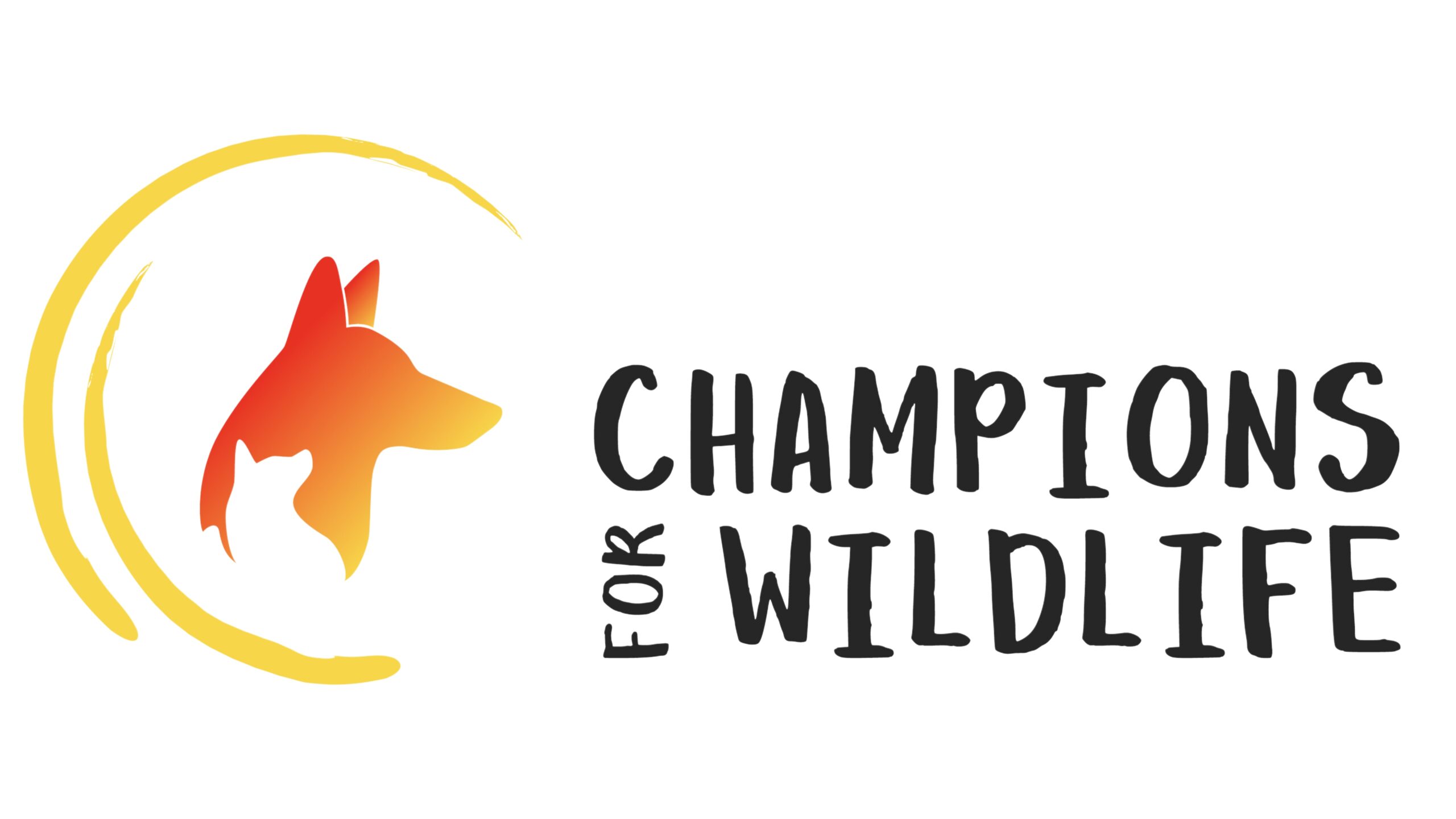Black Bears
Black Bears
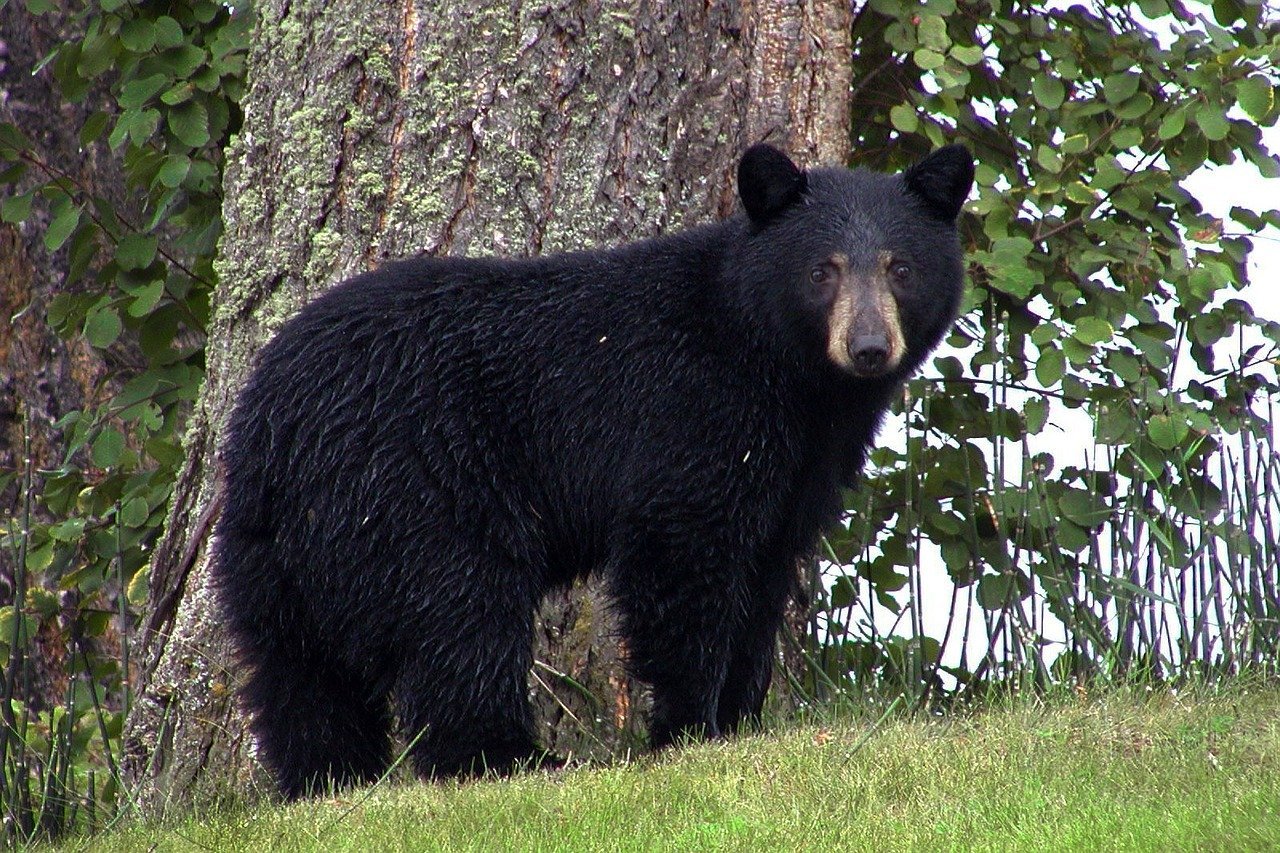
Black bears have an undeserved, bad reputation.
Whenever I see a black bear wander through our property, my heart skips a beat, and I am in complete awe. How do they survive in our neighborhoods with so many obstacles and misconceptions surrounding them?
Should you be afraid? Do you envision a bear with bared teeth as the media often portrays? Or, hopefully, you think of Smokey Bear, trying to prevent forest fires? So back to the question, should you be afraid?
The short answer is no. Seriously, black bears kill less than one person a year on average. Dogs, by the way, kill 30-50 people annually in the US. And cows? How about 20 humans a year?
One of the problems is the media sensationalism of a bear attack. And the other is inaccurate black bear facts that circulate thru social media.
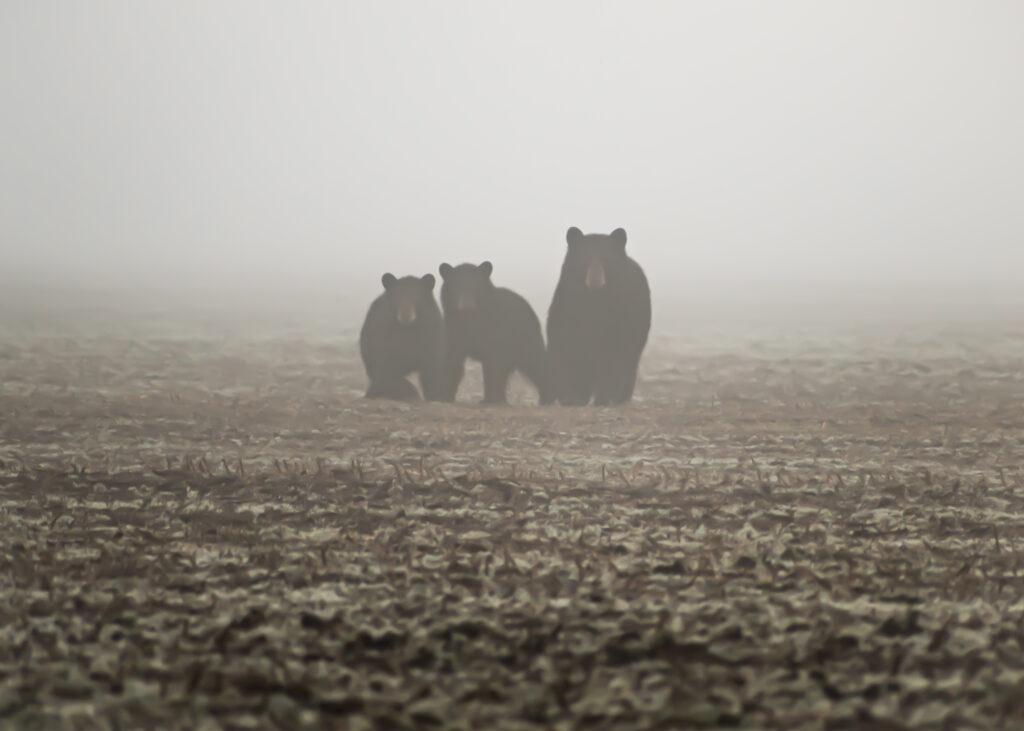
Are momma black bears dangerous with their cubs? Photo: Cassia Rivera
Is A Mama Bear Dangerous?
What we really need is a paradigm shift in how we relate to all wildlife, especially bears. Coexisting is not hard if we just pay attention and use common sense around these gentle, tolerant animals.
So let’s start with the misconception a momma black bear is dangerous with cubs. Untrue for black bears but actually true for grizzly bears. Hmm.
Generally, with black bears, the cubs just climb a tree and mom goes about her business. In fact, there is not a single recorded fatality associated with a black bear defending her cubs!
Black Bear Facts vs Misconceptions
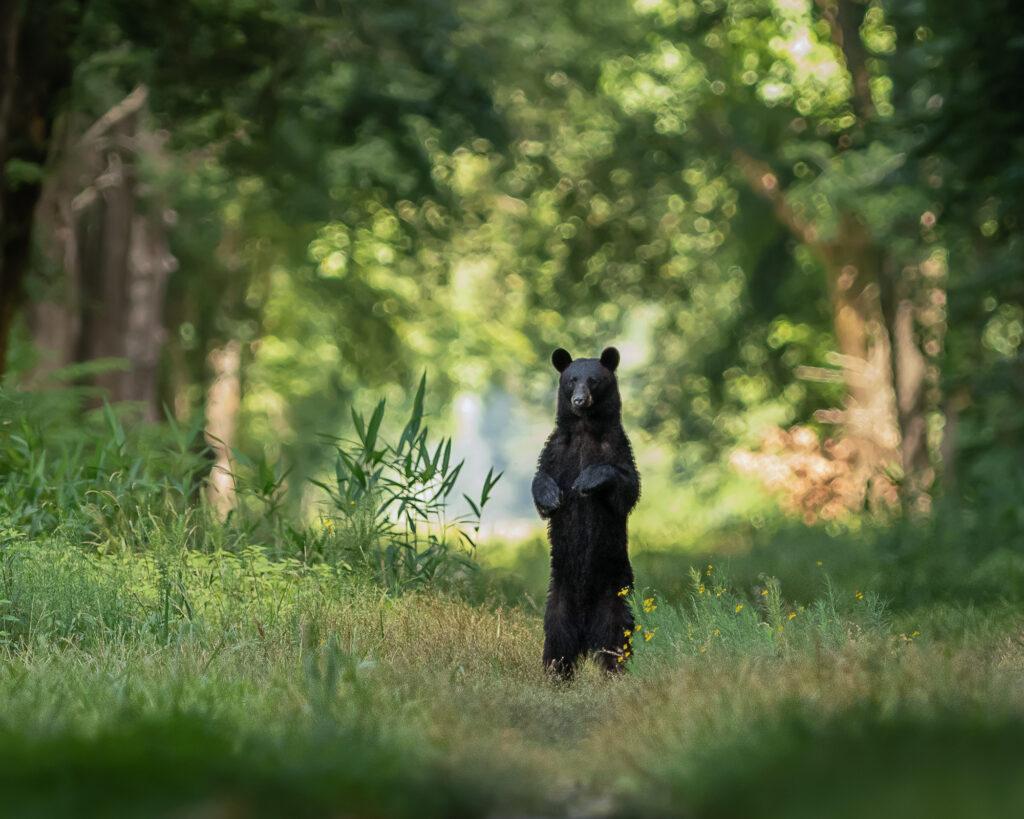
A bear standing up is probably just trying to get a better look or smell of you. Photo: Cassia Rivera
What are some other myths? A black bear standing on its hind legs will soon charge you. Nope, it’s just trying to get a better look or smell of you.
How about one of the false bear facts we often hear? You should play dead if attacked. Again, sometimes true for grizzly bear attacks, but never with black bears. Yell and wave your arms and the bear will probably run off. But remember, out of 900,000 black bears living in the United States, there is less than one fatal attack a year.
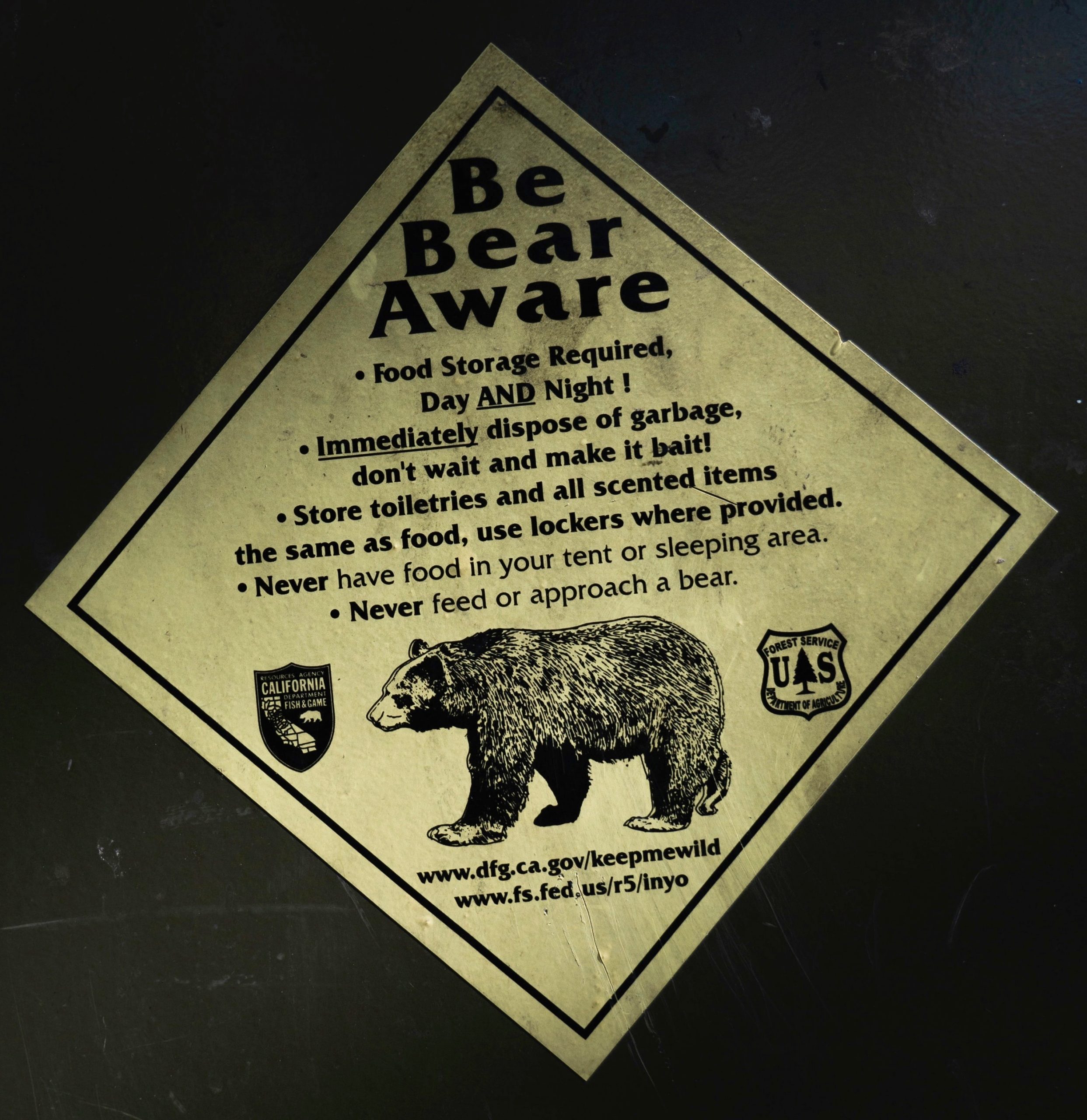
Be respectful if you see a black bear, or any kind of bear.
What If You See A Bear?
The golden rules are:
-
Be respectful and keep your distance. Bears can smell up to a mile away so they probably know you are there long before you see them.
-
Don’t leave food around your house or a campsite. Some bear attacks involve hungry lone males looking for food.
-
If you do encounter one, back away slowly, be noisy, and don’t run.. Darn, the old joke of always hiking with someone who is slower than you doesn’t seem to apply!
Some Cool Black Bear Facts
![]()
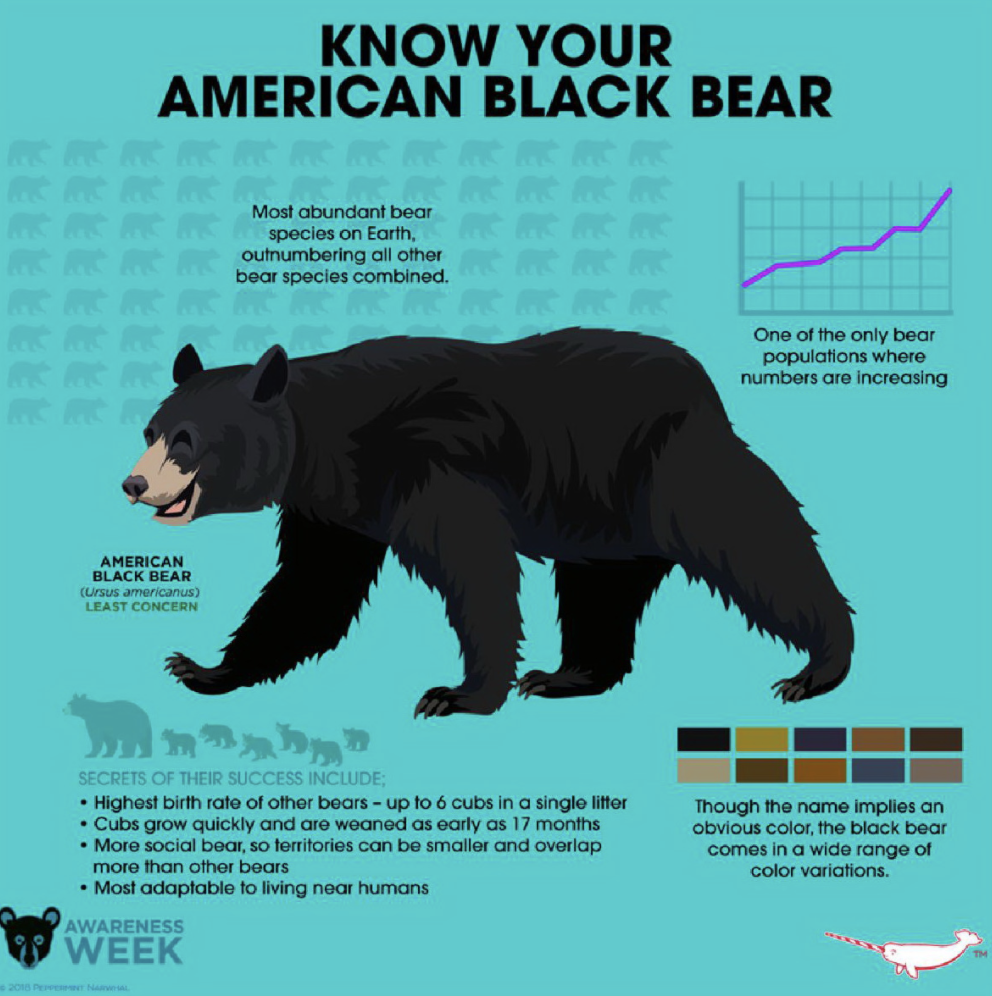
One of the cool black bear facts is they are omnivores, but what does that mean? Diagram: Peppermint Narwhal
As omnivores (just a fancy way of saying they eat both plants and animals), they chow down on just about anything. They love berries, nuts, grasses, fish, small mammals, carrion (dead animals), and birdseed from your feeders. This is why we take our feeders in every night in the winter and don’t put feeders out in the spring, summer or fall.
When winter arrives, they generally stay dormant in a hollow (or den) made out of leaves, branches, and other forest material. During this time, they don’t eat, drink or even go to the bathroom. Fascinating!
And new studies show they heal their bodies of cuts and other minor injuries while hibernating. A true superpower!
How Can You Help?
- Please don’t feed bears. The saying a fed bear is a dead bear is too often true.
- Keep your garbage inside or in a bear-proof container.
- If you hang bird feeders, take them in at night.
- Slow down, especially at night when bears are hard to see. Accidentally running into one isn’t good for your car and even worse for the bear.
- Support conservation groups that protect black bears. And give a positive shout-out to black bears on social media.
Bears need us as advocates to ensure their survival. Help dispel the misconceptions about this North American native, gentle wonder. And the next time you see one, marvel at its beauty and ability to navigate our crowded world.
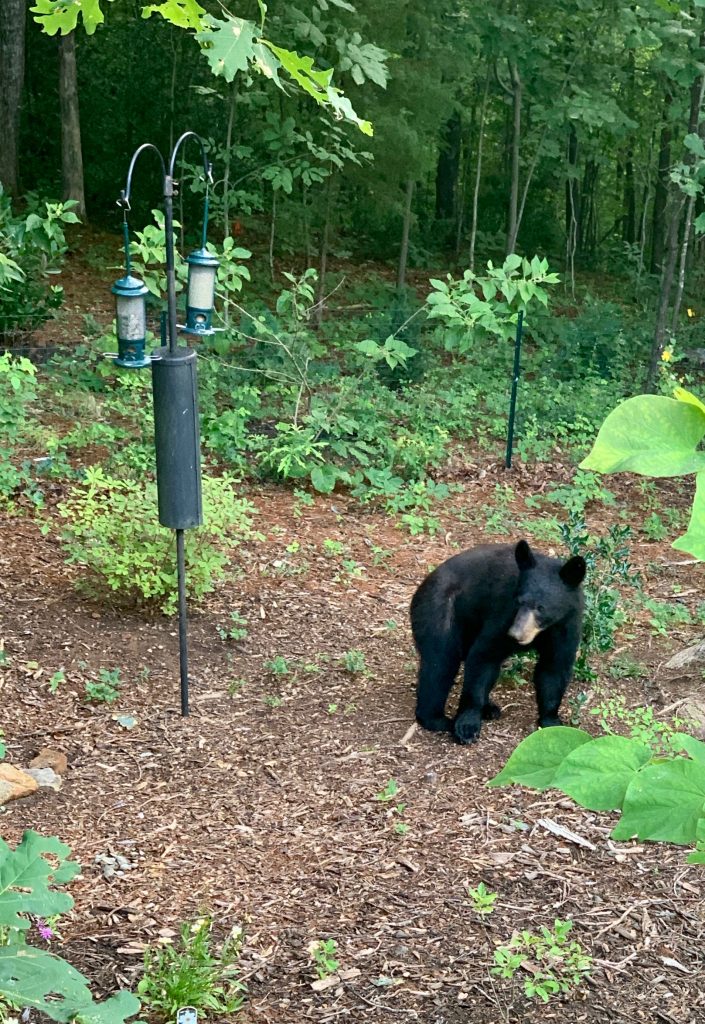
A young black bear eyeing a bird feeder
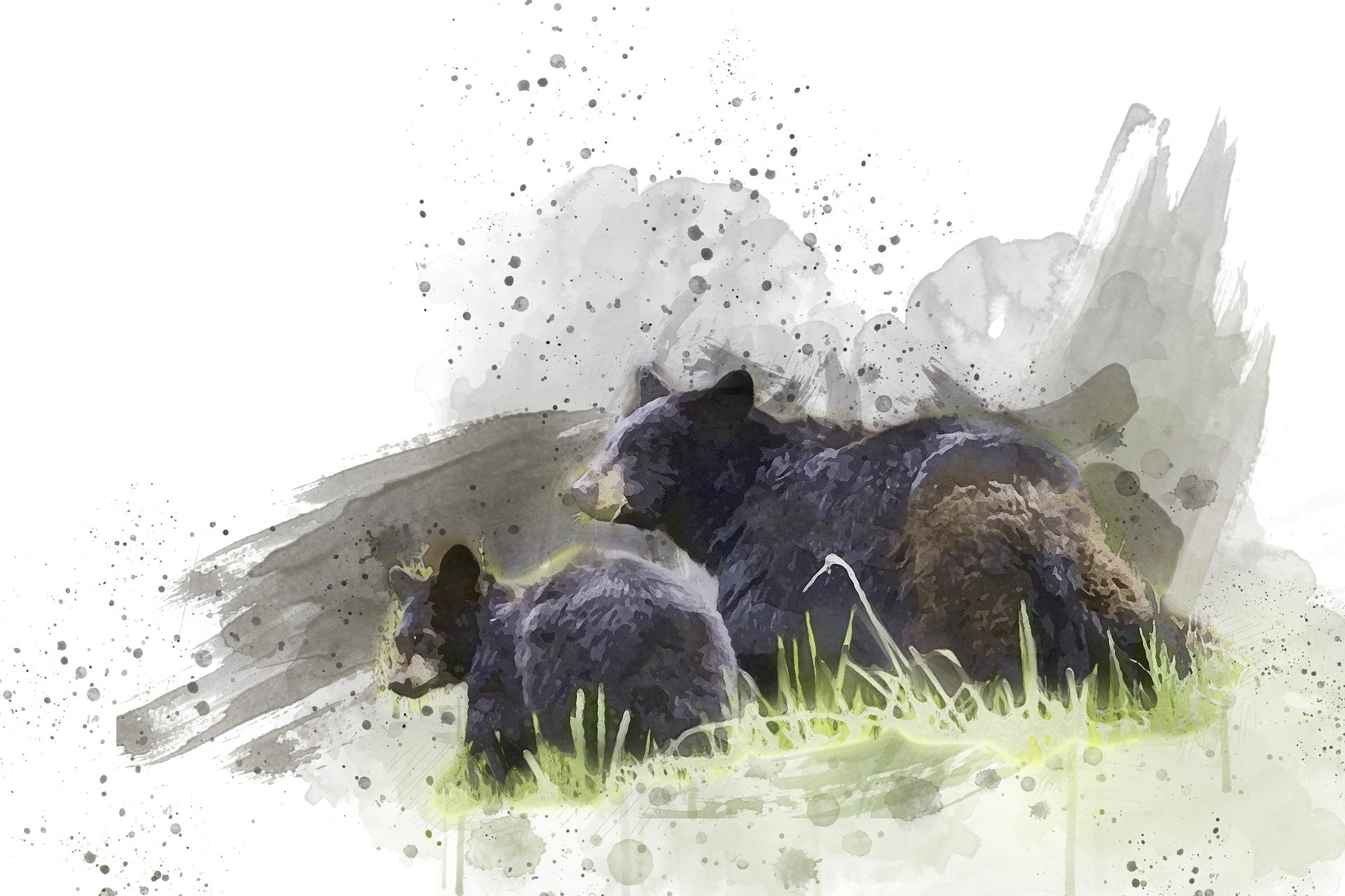
Learn More About Black Bears
Discover Wildlife: 12 amazing black bear facts
National Geographic: American Black Bear
